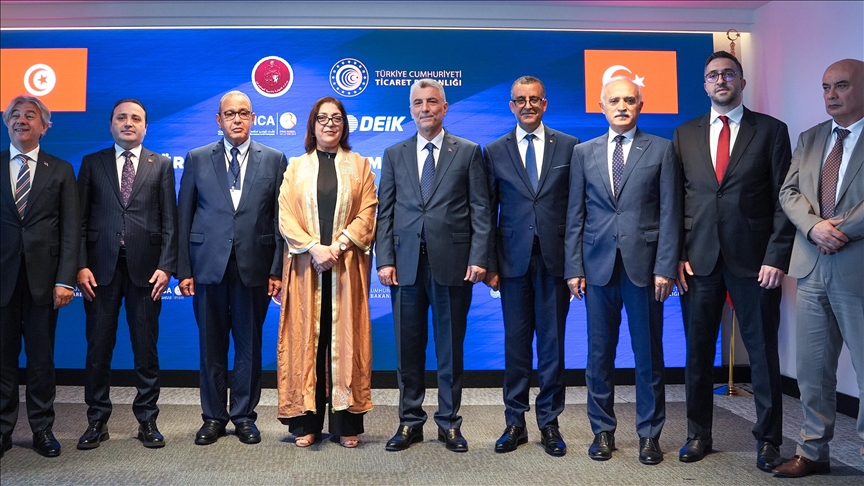ISTANBUL
Turkish and Tunisian trade ministers and officials expressed optimism about increasing bilateral trade volume, inviting businesspeople to invest in different sectors such as manufacturing, agriculture, tourism, and renewable energy.
Speaking at the Türkiye-Tunisia Investment and Business Forum, which was jointly organized by the Tunisian Confederation of Industry, Trade, and Handicrafts and Türkiye’s Foreign Economic Relations Board (DEIK) at the latter’s headquarters in Istanbul, Turkish Trade Minister Omer Bolat said while the two countries’ bilateral trade volume was $318 million in 2003, it increased to around $1.6 billion last year.
With a 12-million population, educated and young labor force, and proximity to Europe, Tunisia is a promising country for increased trade, Bolat stressed.
The minister said Turkish renewable energy companies can contribute to Tunisia, given that Türkiye is ranked 5th in Europe and 11th worldwide in terms of renewable energy.
Turkish construction companies can also contribute to Tunisia’s infrastructure and energy projects, he said.
Partnership opportunities
Tunisian Minister of Trade and Export Development Kalthoum Ben Rejeb, for his part, said the two countries should increase their existing bilateral trade volume, which a free trade agreement could do.
Turkish and Tunisian companies may establish partnerships to enter the European, Asian, and African markets together, she stressed, adding that the two countries firms can work jointly in different fields, including agriculture, industry, chemicals, and home appliances.
She invited Turkish investors to evaluate the Tunisian market, which serves as a gateway to Africa and Europe.
DEIK President Nail Olpak said Türkiye and Tunisia’s bilateral trade volume is around $1.5 billion.
Türkiye’s share in Tunisia’s imports exceeded 6%, Olpak added.
He stated that both countries place a premium on manufacturing, agriculture, tourism, and renewable energy and that firms from both countries should take advantage of investment opportunities in Türkiye and Tunisia.
Fertilizer, PVC, olive oil, port management, and textiles are among the areas where there can be a collaboration between the two countries businesspeople, he stated.

